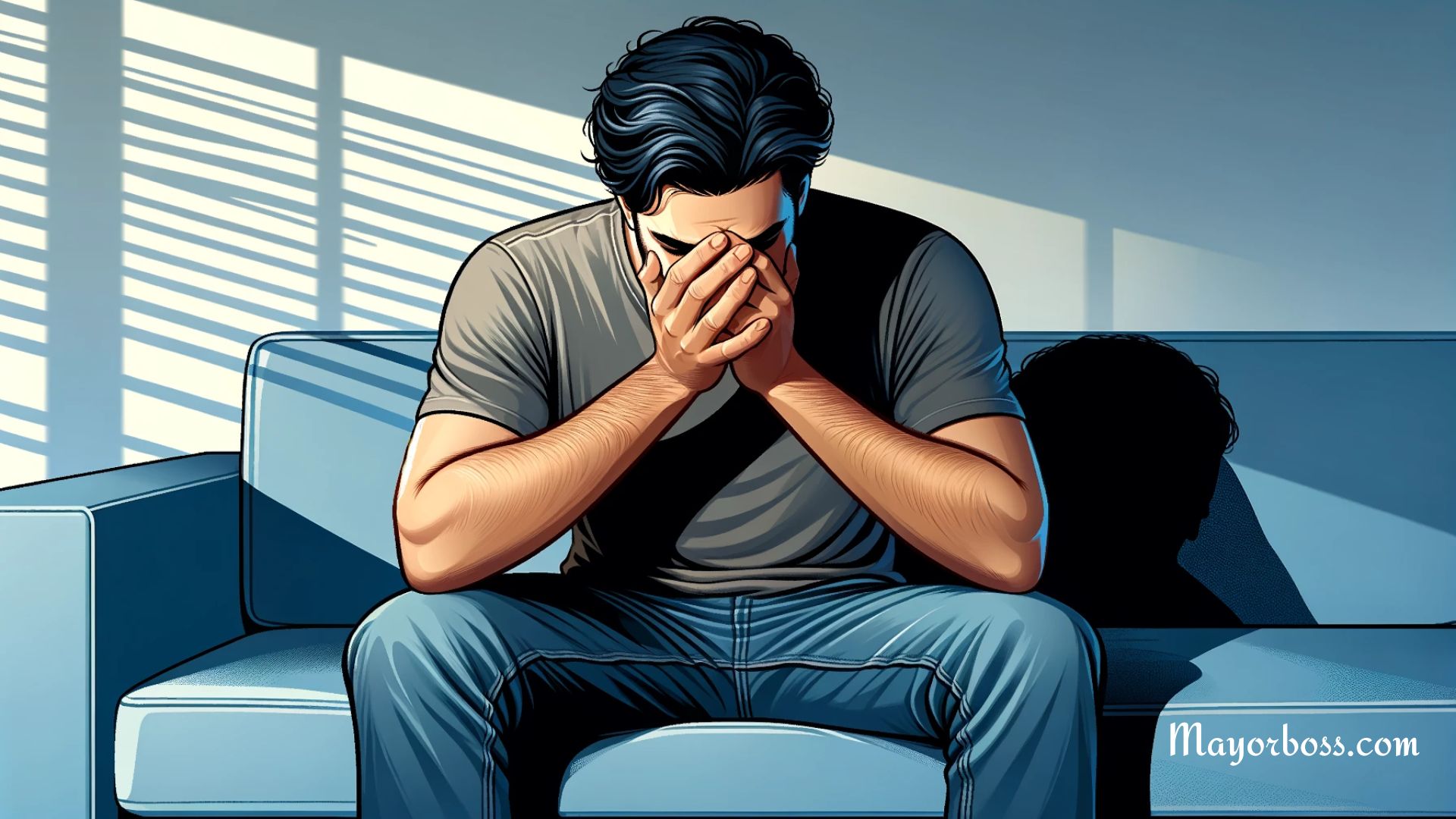What Are the Signs and Symptoms of Depression in Men?
Depression in men can sometimes be hard to spot because the symptoms may not always be what you’d expect. Unlike the general sadness many people associate with depression, men often experience it through irritability, fatigue, and sometimes even anger. Additionally, they might try to cope with their feelings by using alcohol or drugs or throwing themselves into their work.

Physical Changes
Some typical physical signs of depression in men include:
Sleep Disturbances
Men with depression might find themselves sleeping too much or too little. You may feel exhausted even after a full night’s sleep or find yourself waking up early in the morning, unable to get back to sleep.
Changes in Appetite
Depression can lead to increased or decreased appetite, causing significant weight loss or gain. You might notice that you’re eating more comfort foods or that you’ve lost your desire to eat at all.
Aches and Pains
Sometimes, depression presents as physical pain. You might experience headaches, back pain, aching muscles, and stomach pain. Often, these symptoms persist even if you take medication or make lifestyle changes.
Energy Loss
You might notice a significant drop in your energy levels. It could feel like you’re always tired, no matter how much you rest or sleep, making it difficult to get through the day.
Decreased Sexual Desire
Depression can affect your sex drive, leading to a decreased interest in sexual activity. It’s not uncommon for men to experience erectile dysfunction as well, which can further compound stress and the depressive state.
Neglect of Personal Care
You may start to care less about your personal appearance or hygiene. It might seem like too much effort to shower, shave, or dress as you normally would, which can affect your self-esteem and how you interact with others.
Physical Slowness or Agitation
Some men may move more slowly, with their body movements showing a lack of energy. On the flip side, you may feel restless or agitated, unable to sit still, or you might pace, wring your hands, or engage in other repetitive movements.
Emotional Signs
Loss of Interest
One common sign of depression is losing interest in activities you once enjoyed, whether that’s sports, hobbies, or socializing. You may find it harder to get motivated and prefer to stay in rather than go out.
Feelings of Worthlessness
Depression can make you feel unusually critical of yourself, leading to feelings of worthlessness or excessive guilt. You might dwell on past mistakes or feel like you’re a failure, even when others assure you this isn’t the case.
Difficulty Concentrating
Depression can make it harder for you to concentrate, remember details, or make decisions. This can affect your productivity at work or your ability to manage daily tasks.
Behavioral Changes
Withdrawing from Social Situations
Even if you’re usually the life of the party, depression might make you withdraw from friends and family. You may feel like you don’t want to be a burden or that you just can’t face social situations.
Substance Use
Some men might turn to alcohol or drugs in an attempt to self-medicate and deal with their depressive feelings. While it might seem like these substances help in the short term, they can actually make depression worse over time.
Increased Anger or Irritability
Depression in men doesn’t always look like sadness. In fact, it often manifests as irritability or anger. Small annoyances can set off outbursts, and you may find yourself feeling angry without a clear reason.
Risky Behaviors
Engaging in Risky Activities
Some men with depression might engage in dangerous or high-risk activities without considering the consequences. This might include reckless driving, unsafe sex, or gambling.
Thoughts of Suicide
Depression can lead to thoughts of suicide. If you’re thinking about death or suicide, it’s crucial to seek help immediately. This is a sign that you need support from professionals who understand what you’re going through. According to statistics, men are three to four times more likely to commit suicide than women.
Coping Techniques
Seeking Help
Often, men may resist asking for help due to societal expectations or personal pride. However, reaching out to a therapist or doctor can be a vital step in managing depression.
Healthy Routines
Creating and sticking to a healthy routine, including exercise and a balanced diet, can help manage the symptoms of depression. Exercise, in particular, has been shown to have a positive effect on mood.
Depression is a complicated condition with a variety of symptoms, and it’s essential to know that it’s not a sign of weakness. For many men, acknowledging these signs can be a needed step in seeking help and starting on the path to recovery. If you’re experiencing any of these symptoms, talking to a doctor or mental health professional can help you understand what you’re going through and provide you with methods to feel better.
Further Reading: 7 Signs of Depression in Women
